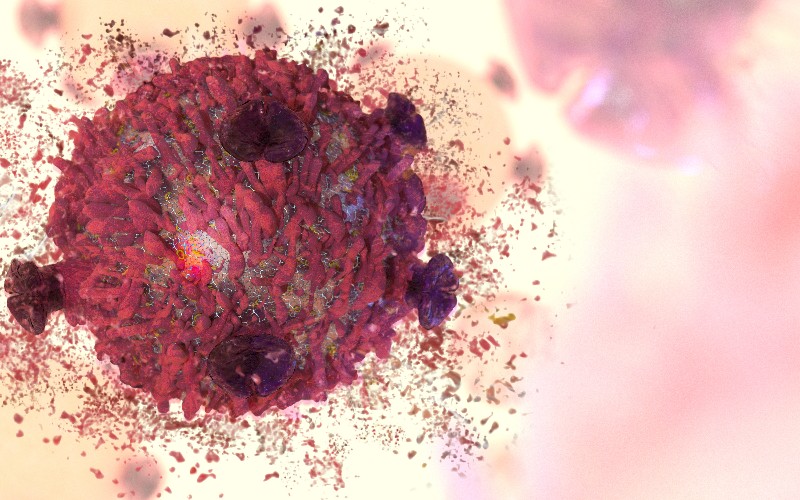Cancer immunotherapy is a relatively novel type of systemic oncology treatment. In 2018, researchers have won the Nobel Prize in Medicine or Physiology for its discovery. These drugs start or enhance immune processes against a malignant neoplasm, and can successfully supplement conventional therapeutic options (surgery, chemotherapy, etc.). Modern immunotherapy cancer treatment is effective in people with metastatic cancer, is well-tolerated and leads to the development of long-term anticancer immunity.
How does immunotherapy work?
Two basic principles of cancer immunotherapy are:
1. Launching the immune response, when the patient’s immunity didn’t manage to detect a tumor itself.
2. Enhancing the already existing immune response, when it is too weak to suppress a malignant process.
Normally, T-killers of the immune system destroy thousands of atypical and malignant cells daily. Unfortunately, some tumors can avoid the immune attack and develop. This happens due to several mechanisms:
- Malignant cells can resemble the healthy ones
- Malignant cells have the specific genetic changes that hide them from the immune system
- Malignant cells have the superficial proteins that turn off immune attack
- Malignant cells change the surrounding healthy tissues, so that the immune response weakens
Doctors at oncologic clinics elaborate therapeutic schemes that can counteract all of these mechanisms.
Types of immunotherapy
Immune system consists of organs, cells and proteins that create the multistage immune aggression against foreign objects in the body (including malignant neoplasms). Several immunotherapeutic approaches are distinguished depending on the point of drug application:
1. CAR T-cell therapy includes genetic modification of the patient’s leukocytes. This is the most novel and advanced type of immunotherapy.
2. Monoclonal antibodies stimulate T-killers or T-helpers by attaching to specific tumor molecules.
3. Immune checkpoint inhibitors eliminate tumor masking and unblock the natural anti-tumor immunity.
4. Cancer vaccines help immunity to see and recognize a tumor as the target.
5. Cytokines are non-specific molecules that activate T-killers and suppress tumor growth.
Your tumor board will choose the best possible cancer therapy, considering peculiarities of your cancer, health condition, age, and other factors.
When immunotherapy can be used
Immunotherapy is administered as the maintaining systemic treatment after the surgical intervention or as the part of a complex therapeutic scheme in patients, who are not going to have surgery. In addition to the direct antitumor action, it contributes to the relapse prevention. Actually, some patients may receive immunotherapeutic agents for years after the diagnosis confirmation.
The list of indications is quite large, including:
- Prostate cancer
- Melanoma
- Lung cancer
- Mammary cancer
- Uterine cancer
- Ovarian cancer
- Stomach and liver cancer
- Pancreatic cancer
- Sarcomas
Hundreds of clinical trials confirm efficacy and safety of this approach. Trials of new drugs and clinical indications are ongoing in many European hospitals.
Hospitals and undergoing immunotherapy abroad
When choosing where to undergo immunotherapy, it is worth visiting University Hospitals in Germany. German healthcare facilities have access to all the approved immunotherapeutic medications and vast practical experience in cancer treatment. Among the most successful hospitals are:
- University Hospital of Ludwig Maximilian University of Munich
- Charite University Hospital Berlin
- University Hospital Frankfurt-am-Main
- University Hospital Ulm
- University Hospital Würzburg
The certified international medical tourism provider Booking Health will help you choose the hospital and start your treatment. Visit Booking Health website to find the updated information about hospitals and treatment costs, types of immunotherapy and comprehensive cancer treatment.
In addition, Booking Health will fully arrange your trip to Germany, facilitate visa issuing, provide you with an interpreter and take care of documents translation, exclude additional fees for foreigners from a hospital’s prices, and do much more. Feel free to contact Booking Health, if you need treatment abroad.

